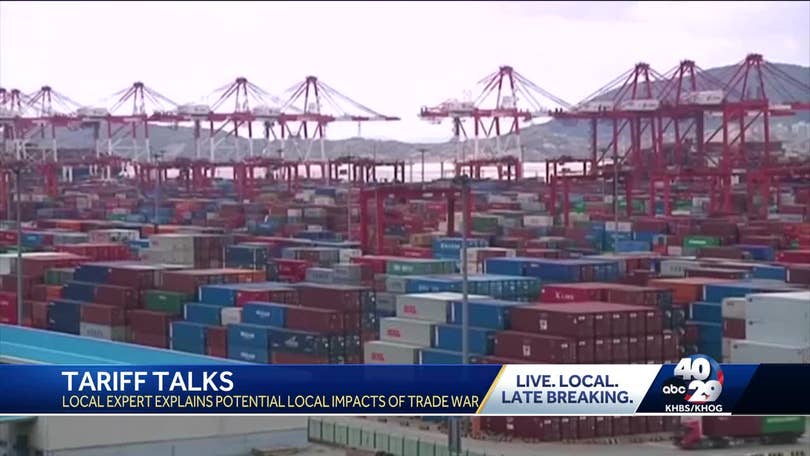Trade War Troubles: North Little Rock Town Hall Debate Addresses Impact of Tariffs
On Tuesday, a town hall debate in North Little Rock, Arkansas confronted the economic instability triggered by President Trump’s significant tariff impositions. These tariffs have sparked turbulent trade scenarios worldwide, directly impacting several local enterprises. A diverse panel, featuring the CEO of Jenkins Enterprises, a GOP state senator who also owns a farm in Clay County, and a libertarian economist of the UALR Economic Development Institute aimed at stimulating national conversation about how tariff and trade barriers are influencing local economies while envisioning potential future trading scenarios.
The chief takeaway for the attendees was the adverse impact of these tariffs on Arkansas businesses, however, accompanied by a glimmer of hope that the ongoing trade war might ultimately lead to more beneficial trading arrangements. Trump’s ‘Liberation Day’ tariff announcement, made on the 2nd of April, threatened to unsettle global trade and market scenarios until a noteworthy decrease in the stock market forced a reconsideration of the high tariffs, as extreme as 50% for certain countries, thereby creating space for negotiation.
A significant focus of Trump’s tariff strategy has been China, with a 30% tariff levied on their imports while bilateral negotiations are in progress. This decision is echoed by China, who reciprocated by enforcing a 10% tariff on imports originating from the United States. This reciprocal move has weighed heavily on American farmers, given that China is the largest consumer of American agricultural produce.
The pause initiated on the ‘Liberation Day’ tariffs is anticipated to conclude on July 9, with no information regarding an extension thus far. The consensus on tariffs is largely negative, with majority deeming them harmful to the economy. In case of a continued trade war with China, there is an increased emphasis on seeking new markets, possibly Vietnam or Indonesia, as potential destinations for American agricultural exports.
The tariffs imposed on Chinese imports have had the most substantial impact, with their value witnessing a substantial surge. In a likely trade war scenario, it’s deemed crucial to pursue fresh market opportunities and expand in alternate regions if Chinese markets become largely inaccessible. Negotiations with multiple countries are underway, and hopes of positive outcomes remain high. It’s crucial for the economy’s health to provide support to local farmers and industries.
The trade conflict between the United States and China presents a complex situation for local businesses. Tariffs could drive a significant proportion of U.S. farmers towards bankruptcy unless adequate economic support is extended. The prevailing hope remains that pressure from tariffs will urge countries to negotiate favorable trade agreements, leading to sustained economic gains.
The uncertain future of soybean exports, a staple of Arkansas farming, has led local farmers to decrease soybean plantation and shift towards increasing corn production this season. Escalated tariffs are straining businesses reliant on importing affordable manufactured goods from China which eventually drives up the prices of goods for the end consumer.
In an extended trade war scenario with China, businesses are exploring importing from other global markets. However, the feasibility of this switch remains a challenging proposition.

